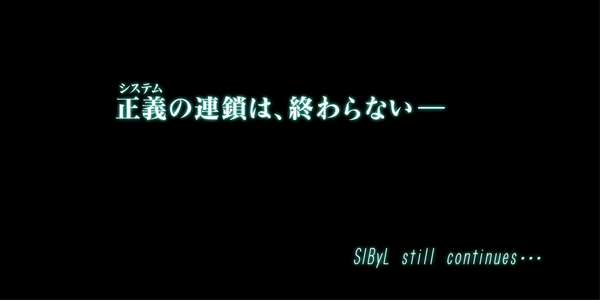Psycho-Pass follows in the path of many other dystopian narratives before it by showing us an ideal, supposedly infallible world which harbours a dark secret. It takes place primarily in Tokyo, Japan, a full one hundred years from the present day at a point where technology has integrated seamlessly into daily life. Robots can be found wherever one turns: rubbish collection, street patrols - even waiting tables at cafes! - while holograms are used to create illusions of beauty in a heavily polluted urban jungle. Clothing, furniture, architecture, and so on! Fans of works such as Ghost in the Shell, Blade Runner, and Minority Report will find the world of Psycho-Pass very familiar as it incorporates key aspects from them, as well as the occasional sly reference.
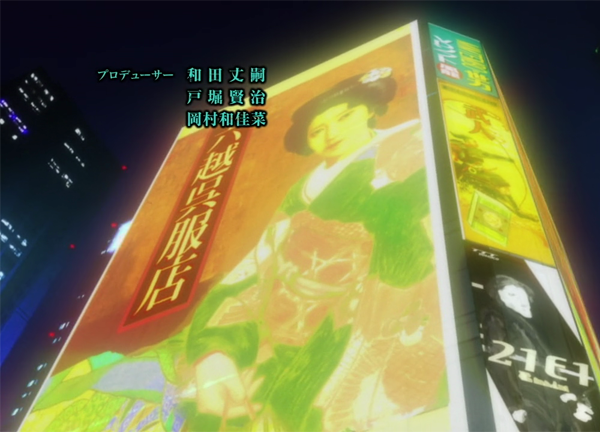
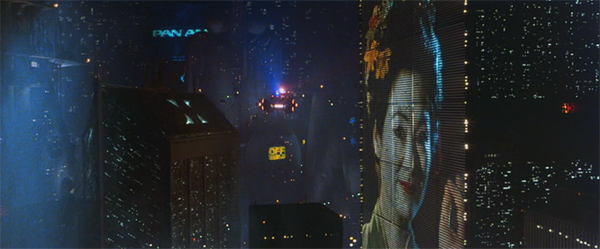
Top: Geisha sign from Psycho-Pass' opening sequence (first season, episode one); Bottom: Geisha sign from Blade Runner's opening sequence.
While this series provides plenty of suspense, action, and gritty detective work, it’s also a feast for those who like to delve into the guts of a story and discuss its themes. Sharp viewers will realise that the deeper you get into this anime, the less it is about ‘right versus wrong’ and the more it becomes a quintessential problem of humanity. How much of a right do we have to judge another individual? How should that individual be judged and who by?
At the crux of this issue (and the entire series) is a vast, intelligent network known as the Sibyl System.
What is the Sibyl System?

"That which needs to be done is carried out by those capable. Such is the grace bestowed upon mankind by Sibyl." - the Sibyl System’s manifesto.
The Sibyl System is what dictates the lives of Japan’s citizens. It is an immense artificial intelligence that is able to document, assess, and make pinpoint predictions of an individual’s personality and aptitude. This is then expressed as a numeric quantity known as a 'Crime Coefficient' and colour known as a 'Hue' - collectively known as a 'Psycho-Pass'. The system is primarily a means to monitor the health and mental well-being of a person, but its accuracy also allows it to predict the future course of a person’s life - even when they are still a child.
On the surface, it appears that the Sibyl System has been nothing but a benefit to society. Its role is to ensure the greatest amount of happiness for the greatest amount of people. It selects jobs that are most suited to a person, sends alerts when their mental health is deteriorating, and maintains public law and order through swift, pre-emptive apprehension of criminals.
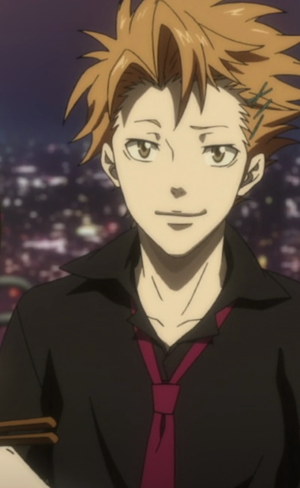
Pictured right: Shuusei Kagari, judged a latent criminal at the age of five with no hope for rehabilitation. He chose to work as an Enforcer for the Public Safety Bureau rather than languish in an isolation cell.
+ Latent criminals are those Sibyl judges to have the potential to commit a crime. Such individuals have Psycho-Passes over 100 and are typically identified and sent to a rehabilitation centre before they can pose a threat to normal citizens. Once in the centre, it can be very difficult to return to the outside world. Most latent criminals remain there indefinitely unless, like Kagari, they are recruited by the Public Safety Bureau as Enforcers.
+ Enforcers are the current-day equivalent of detectives. They perform most of the footwork, chase down dangerous criminals, and advise their handlers (known as 'Inspectors') on the thought processes behind criminal acts.
+ If Enforcers are detectives, then Inspectors are more like police supervisors. They ensure that Enforcers do not step out of line because, despite their rank, Enforcers are still considered potential criminals by the Sibyl System.
Through this hierarchy, Sibyl ensures that law and order is maintained in Japan whilst making the best use of its citizens.
As a result, Japan’s citizens go about their daily lives with the assurance that they have nothing to fear, even from complete strangers on the street. The average person can leave their door unlocked when they go out, safe in the knowledge that Sibyl will swoop on potential thieves before they can commit their theft.
All of this makes it seem like Japan has developed the perfect system: an intelligent computer that is free from the bias of human nature, able to perform and deliver judgements without error. Yet, the Sibyl System suffers from one fatal flaw (fair warning - spoilers lie ahead!).
The truth about Sibyl
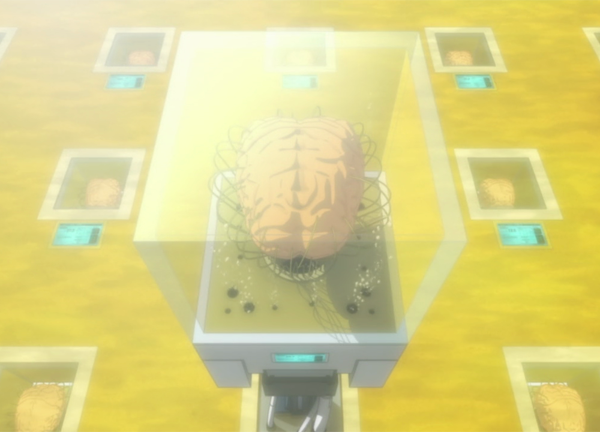
The Sibyl System is actually a network of over two hundred brains extracted from unique individuals (known as ‘asymptomatic criminals’) who are outside the ability of Sibyl to judge. These individuals are recruited quietly by Sibyl and asked to become part of the system. If they agree, the person’s brain is extracted and their physical body disposed of.
Sibyl’s core, as this collection of brains is known as, is a secret kept hidden beneath a place called Nona Tower. They are directly responsible for managing the Public Safety Bureau, each taking turns to share the cybernetic body of the Bureau's chief, Joushuu Kasei. This makes it very easy for them to cover up the disappearances of those they recruit to the system. Their position of power not only allows them to erase their members' existences, it also allows them to keep a metaphorical eye on anything that might threaten them.
As a result, very few people are aware Sibyl is anything other than an advanced computer network. The core members ensure that anyone who ventures too close is eliminated. However, it makes an exception for those it considers unlikely to reveal its secret. Akane Tsunemori is one such person: although she disagrees with what they represent, she keeps Sibyl's secret because she knows that their society is not ready to stand without it. However, she is determined to see the day come where the system can be switched off permanently.
Whether or not that day comes, for now Sibyl has to endure various attempts to bring it down.
Opponents of Sibyl
Due to the controversial nature of the Sibyl System, there have been individuals who tried to challenge the system or force its removal. In season one it was Shougo Makishima, and in season two it was Kirito Kamui. Both men spark interesting questions about law, justice, and humanity as they search out the system. Both are individuals who perceive Sibyl to be flawed. But unlike Akane, neither believe society requires a system like it.
Here's an overview of what they did and what they stood for:
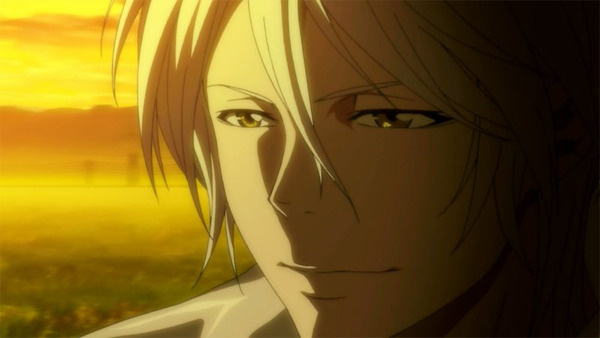
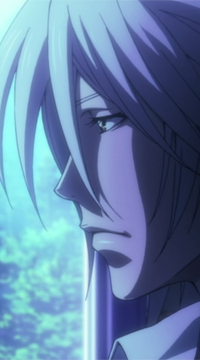
Shougo Makishima is an asymptomatic criminal. As mentioned earlier, this means that he can't be judged by Sibyl. According to him, his Psycho-Pass number has always been low even as a child. He is the only character so far to have shown a pure white Hue - something which only occurs when one's Crime Coefficient is 0.
The fact that his Psycho-Pass remained low no matter what his thoughts or actions were meant that he came to believe Sibyl was somehow giving him silent approval for them. Everyone had been taught that the system is always right. If the system is always right, then all the crime he is complicit in must somehow be just, else he would have long ago been picked out as a criminal. However, this didn't happen; he was never judged. So he sought to find out the true nature of the Sibyl and, upon discovering the brains (hah!) behind it, grew more determined to break society's dependence upon the system.
As a believer in free will, he disliked how everyone had gone beyond trusting Sibyl to completely relying upon it for everyday direction. He believed that human nature is something that can't flourish without freedom of expression (such as in arts and literature). The extent to which society had sacrificed this for 'happiness' had gone so far that many became numb to any form of stimulation.
In the end, Makishima's attempt to bring down the Sibyl System failed. But he represents a common theme that many dystopic narratives share: the sacrifice of free will for a perceived utopia. Typically we see these sorts of stories end with free will returned to the people. However, his failure meant that Sibyl's power remained unshaken. While it's the usual surprise ending we might expect from the writer, Gen Urobuchi, it forces us to ask ourselves this:
When we weigh a chaotic but free, equal-chance society where your future is uncertain against a peaceful, non-stressful one with clear-cut discrimination, which would we pick to live in?
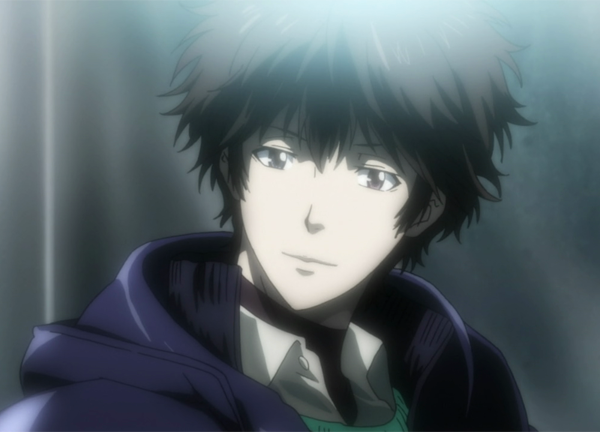
Kirito Kamui on the other hand is a ghost, a literal Frankenstein's monster. An operation to save his life after an accident left him the product of over 180 parts from those who had died in the same accident. As a result, Kamui is unrecognised by Sibyl because he no longer has a single identity. This makes him a mirror for the Sibyl System, which is also comprised of numerous individuals that work together to perform as one whole.
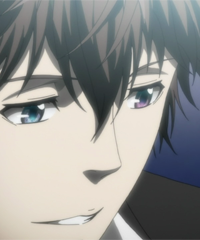
Due to his unique circumstance, Kamui grew cynical of Sibyl. If Sibyl couldn't judge him then it didn't deserve its praise as a perfect system. He methodically exposed Sibyl's weaknesses until he found its core, and then he attempted to judge it by using its own tool of judgement - instigating what is known as a God Paradox.
Unlike Makishima, who asked what it means to lead a 'fulfilling life' before and after Sibyl's implementation, Kamui directly challenges Sibyl by presenting it with this paradox: if the Sibyl System is a perfect judge of everyone then it should also be a perfect judge of itself. However, the asymptomatic members who perform the system's judgements were recruited on the basis that they fell outside of Sibyl's ability to judge. How then does a group of these individuals judge itself as a whole?
Sibyl's answer is to expel several of its members in order to bring its own Crime Coefficient down to 0. At the same time, it gains the ability to recognise and judge a collective group (e.g. itself and Kamui).
But this evolution introduces a dangerous precedent: Can the actions of an individual be ignored if their actions as part of a group are justified? Or vice versa: what happens if a group is judged as criminal despite the individual members' Psycho-Passes remaining clear (as Sibyl initially believed of itself)?
This was Kamui's final challenge to the system.
What lies ahead?
Sibyl one day hopes to be able to reveal its existence to the public. To that end it is working on coaxing society towards a point where its true nature will be accepted and embraced, while continuing to evolve to become a true, perfect entity. While that day may be far off (or may not even come at all), as long as it is needed by society then it will continue to monitor and police it.
After all, "the chain of justice (the system) does not end..."
